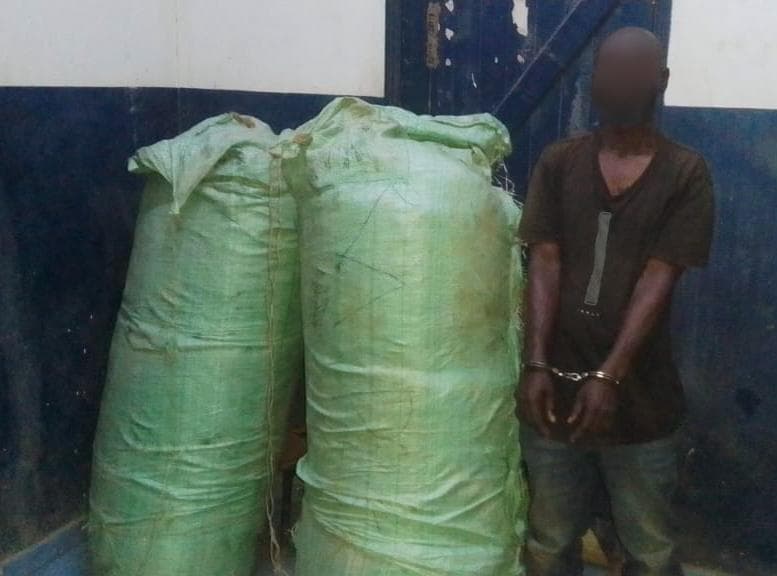We're loading the full news article for you. This includes the article content, images, author information, and related articles.
Police in Kwale County have intercepted a lorry ferrying two sacks of cannabis along the Mombasa-Nairobi Highway, leading to the arrest of the driver. This operation highlights ongoing efforts to combat drug trafficking in the region.

Police in Kwale County on Monday, October 6, 2025, arrested a lorry driver and seized two sacks of cannabis during a routine patrol at the Mackinnon area along the Mombasa-Nairobi Highway. The operation was conducted by officers from the Coast Regional Headquarters, a known hotspot for drug trafficking and illegal cargo smuggling.
The National Police Service (NPS) confirmed the interception in a statement shared on its official X account on the same day.
Cannabis, locally known as bhang, remains illegal in Kenya under the Narcotic Drugs and Psychotropic Substances (Control) Act, 1994. Despite its prohibition, cultivation and consumption persist across various regions, with Kenya identified by the United Nations Office on Drugs and Crime (UNODC) as a significant producer in East Africa. Cultivation is particularly noted around Mount Kenya, Lake Victoria, and coastal areas.
Kenya's Narcotic Drugs and Psychotropic Substances (Control) Act, 1994, stipulates severe penalties for drug-related offenses. Possession of any narcotic drug, including cannabis, is an offense. Individuals found with cannabis for personal use can face a prison sentence of up to ten years. For those involved in the supply or trafficking of cannabis, penalties can range from 20 years to life imprisonment, along with fines of up to one million shillings or three times the market value of the seized cannabis, whichever is greater. Growing cannabis is also illegal, with cultivators facing similar fines and jail terms, and the land used for cultivation subject to forfeiture to the government.
The recent interception is likely to fuel public debate on drug policy and enforcement. While there have been campaigns for the legalization of cannabis, particularly for medicinal and industrial uses, the government has maintained a strict stance against recreational use. The National Authority for the Campaign Against Alcohol and Drug Abuse (NACADA) emphasizes the need to continually share facts about cannabis, noting its classification as a controlled substance under international conventions.
Continued drug trafficking poses significant risks to public health and security in Kenya. The illicit trade can fuel other criminal activities and undermine community safety. For individuals involved, the legal consequences are severe, impacting their lives and livelihoods.
The exact quantity of cannabis seized and the estimated street value were not immediately disclosed by the National Police Service. Further details regarding the driver's identity and potential links to larger drug networks are also pending.
Further investigations are expected to shed more light on the origin and intended destination of the seized cannabis, as well as any broader criminal networks involved. The incident may also prompt renewed discussions on drug enforcement strategies and public awareness campaigns.
This incident follows ongoing efforts by Kenyan law enforcement agencies to curb drug trafficking across the country, particularly along major transport routes that are often exploited by smugglers.
Keep the conversation in one place—threads here stay linked to the story and in the forums.
Sign in to start a discussion
Start a conversation about this story and keep it linked here.
Other hot threads
E-sports and Gaming Community in Kenya
Active 9 months ago
The Role of Technology in Modern Agriculture (AgriTech)
Active 9 months ago
Popular Recreational Activities Across Counties
Active 9 months ago
Investing in Youth Sports Development Programs
Active 9 months ago